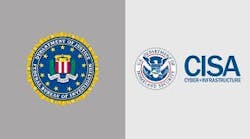A man arrested in Britain in August for allegedly soliciting money and recruiting jihadist fighters using Internet servers in the United States also purchased bombmaking materials and camouflage suits, according to court papers filed by the U.S. attorney in Connecticut yesterday.
An indictment handed up against Babar Ahmad, 30, a British citizen of Pakistani origin, charged that he conspired to provide material support to terrorists, laundered money for their cause and conspired to kill or injure people in a foreign country.
The indictment and an affidavit seeking Ahmad's extradition to the United States contain new details about his alleged activities, including his alleged support for Shamil Basayev, the Chechen mujaheddin commander who has claimed responsibility for the deadly terrorist attacks on a school in Beslan, Russia, and a Moscow theater.
The court papers reveal that an Aug. 3 search of Ahmad's London apartment turned up materials showing that in 1997 and 1998 he allegedly sought to buy as much as 5,000 pounds of fertilizer and large quantities of chemicals for a third party, possibly in Pakistan. About the same time, Ahmad allegedly bought 100 camouflage suits from a company on Long Island and had them delivered to Britain. He is also alleged to have visited the United States then and returned to Britain with a Global Positioning System device and a bulletproof vest.
Ahmad, the subject of a three-year investigation, is the cousin of a suspected al Qaeda operative arrested in Pakistan in July. Investigators discovered then that Muhammad Naeem Noor Khan's computers contained detailed surveillance information on five financial buildings in New York, Newark and Washington, prompting officials to raise the terrorist threat level for those areas.
Ahmad, who worked on computers at a London college until his arrest, has said he does not understand the charges against him and does not want to be extradited to the United States.
Ahmad allegedly operated pro-jihad Web sites between 1997 and 2003 that solicited aid and financial support for terrorist organizations, including Chechen mujaheddin, as well as the Taliban. Azzam Publications and its related Web sites, including Azzam.com and Qoquz.net, were well-known sites "established and operated to recruit individuals to be mujaheddin and to solicit and raise funds and assistance for jihad," according to the indictment.
Ahmad is accused of possessing classified plans for a U.S. Navy battle group operating in the Persian Gulf in 2001, along with communications showing that the battle group was assigned to enforce sanctions against Iraq and tasked with conducting operations against Afghanistan and al Qaeda.
Ahmad communicated with an unnamed sailor aboard one of the ships who was sympathetic to the jihadist cause, advising him to "keep up the psychological warfare," according to court papers.
E-mails on Ahmad's computer include discussion of donations to the Taliban and Chechen mujaheddin, shipments of gas masks, procurement of night-vision goggles and safe routes into Afghanistan, the papers said. Ahmad also had a drawing of the Empire State Building and manuals on urban warfare.

